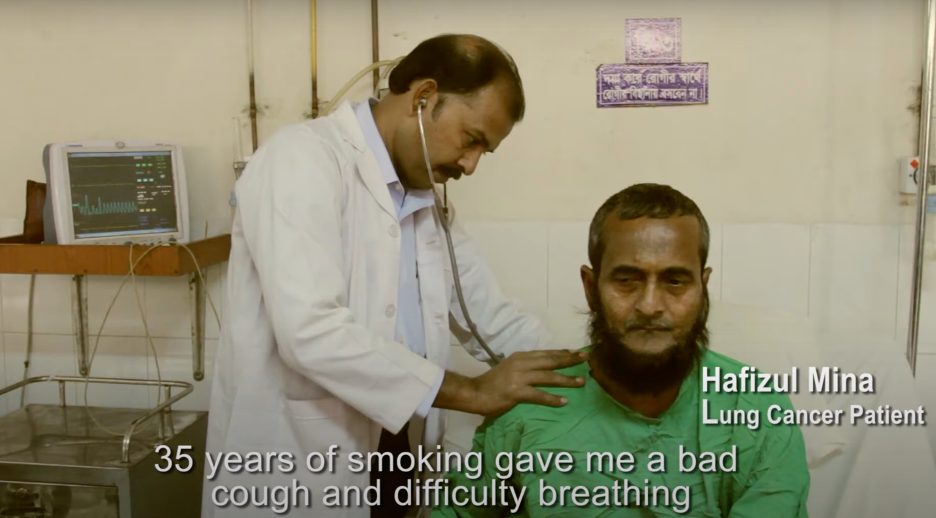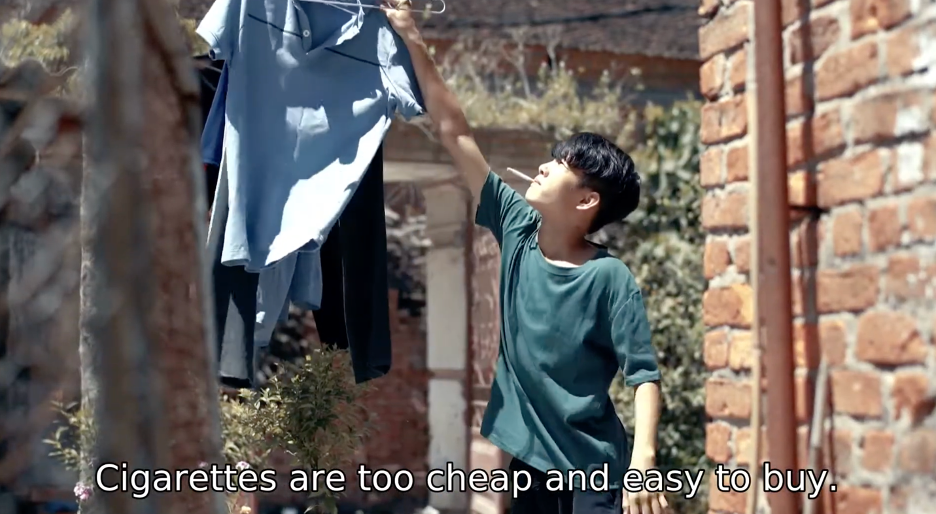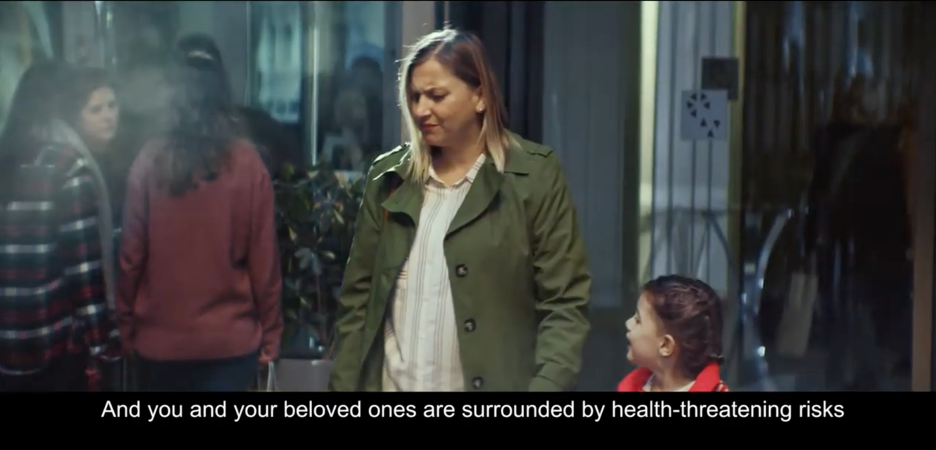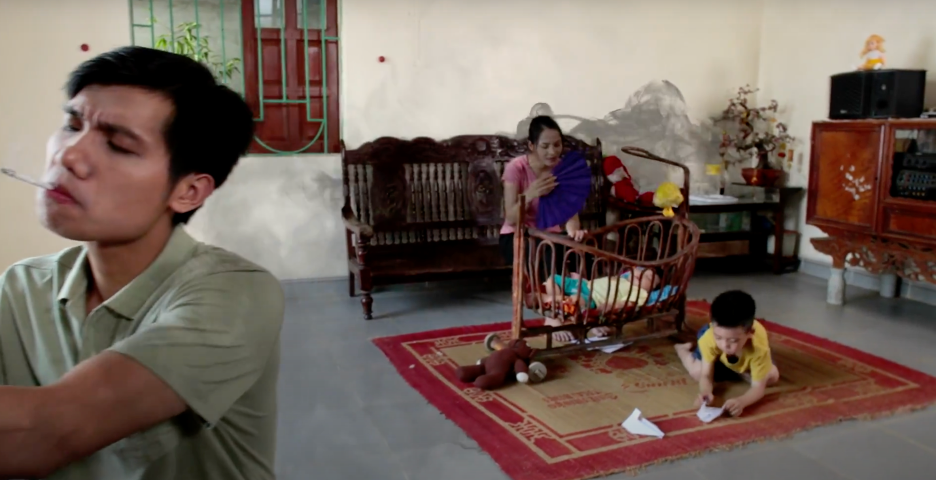November is Lung Cancer Awareness Month in the United States. We join the call to raise awareness of the disease and strengthen prevention efforts and research, both in the United States and around the world.
Lung cancer is the second most common cancer and the leading cause of cancer death in the U.S. Rates are highest among Black men—who are frequently targeted by the tobacco industry. Before tobacco products started to be mass produced in the late 19th century, lung cancer was a rare cancer. But as smoking spread around the world, so did the disease. Approximately two-thirds of all lung cancer deaths globally are attributable to tobacco smoking, with much of this burden shifting to lower- and -middle income countries where policies to reduce smoking are often weak.
Now, lung cancer is the most commonly diagnosed cancer in the world—and is also the most fatal. In 2018, worldwide there were an estimated 2.1 million cases and 1.8 million deaths from the disease.
The lung is constantly exposed to the external environment and to particles, chemicals and other infectious organisms in the air. For this reason, environmental exposures such as secondhand smoke, indoor and outdoor air pollution, radon and other airborne carcinogens, are also significant risk factors for lung cancer.
Our lungs work around the clock to keep us breathing. Governments can do the same by implementing policies to keep our air and lungs cleaner. Below are key policies and strategies that must be enacted to reduce risk factors for lung cancer:
Increase Taxes on Tobacco
Reducing tobacco smoking could prevent the majority of lung cancers cases. The most effective way to decrease tobacco use is through tobacco taxes. According to The Tobacco Atlas, high taxes that make tobacco less affordable reduce tobacco initiation and consumption. Making cigarettes four times more costly in all countries globally by 2025 would deliver the World Health Organization target of reducing tobacco use prevalence by 30% by 2025. In a number of countries, Vital Strategies provides technical assistance for mass media campaigns designed to highlight the link between tobacco use and lung cancer, and to build support for tobacco tax increases.


Ensure Spaces are Smoke-Free
People who have never smoked are also susceptible to lung cancer; particularly if others are smoking around them. Research has shown that nonsmokers exposed to secondhand smoke at home or in the workplace have a 20-30% higher risk of developing lung cancer.
Protecting people from exposure to secondhand smoke by creating 100% smoke-free environments is part of WHO’s MPOWER policy package for tobacco control. Governments are encouraged to pass smoke-free legislation banning smoking in all public places, including all indoor workplaces, restaurants and other businesses.
There are now 62 countries with a complete law on smoke-free environments and 70 countries with minimal to moderate laws that ban smoking in some public spaces and workplaces. This means there are still too many people around the world not protected by smoke-free laws.
To promote smoke-free environments, Vital Strategies has provided technical assistance for campaigns that build public support for and encourage enforcement of new smoke-free laws, and that urge people to stop smoking in their homes and exposing their families to the harms of secondhand smoke.


From a campaign for smoke-free homes in Vietnam, which shows how smoking in the home affects the health of the entire family.
Enforce Clean Air Policies to Reduce Pollution
As air pollution levels continue to climb in urban centers of many low- and middle-income countries, we are starting to see a shift in causes of lung cancer. Experts on global disease burden found that about 42% (around 1.7 million deaths) of the 4.2 million premature deaths in 2015 linked to air pollution were from lung cancer and other respiratory diseases.
To improve air quality and health, Vital Strategies partners with governments to provide technical expertise that informs policies and influences public discourse on air pollution. In Indonesia we’ve worked with Jakarta’s city government to develop an air management plan. In India, we’ve worked with the government to understand attitudes on air pollution and offered guidance on how to dispel myths and misperceptions.
There are proven solutions to addressing the global air pollution crisis that particularly affects low- and middle-income countries.
Countries should adapt smart and cost-effective practices and technologies that have been proven to work. This includes implementing successful air quality management systems and subsidies to accelerate access to clean, modern household energy, clean vehicle technologies and fuels, and modern waste management and agricultural practices to replace open burning.
Similar strategies and messages that have been proven to be successful around tobacco control and the dangers of secondhand smoke can be tested, tailored and used to combat air pollution. dispel myths and misperceptions. Progress on tobacco control also involved investigating and identifying deceptive and unethical industry practices, which could be adapted in this case. While air pollution is more complex, the power, motor vehicle, coal and industrial sectors have all played a role in delaying the introduction of regulations and available technology that could greatly reduce harmful emissions.
Finally, governments should consider imposing more taxes, fees and fines on polluting activities to recoup some pollution-related health costs while incentivizing cleaner technologies.
Read more from our team on air pollution and lung cancer.
Reducing air pollution and smoking and improving the quality of the air we breathe and the health of our lungs, will require collective action from the public, health scientists, policymakers, and industry.
These policy and communication strategies can help us move toward a future where lung cancer is once again a rare cancer.